A potter preparing clay
It is located in Bhowanipur Chowdhury Para (Kumar Para) of Parbatipur Upazila of Dinajpur district. It is located 1 kilometer west of Bhowanipur Bazar on the south side of the road leading from Bhowanipur to Chowpati Bazar. It is a small village of potters. About 50 families are involved in this potter profession here. Every day many people come here to buy clay pots. The transportation system here is very good. There are paved roads so it is easy to get here.
Cleaned clay that has been made suitable for making pots
Almost every potter has kept a layer of such clay in front of their house. They have separated all the clean clay from these clays by selecting the dirt and other rubbish. They have kept these clays separate as they are now suitable for giving different shapes. Then they will shape the pot with these clays in different ways.
Time to let the clay pots dry in the sun.
Pottery
After making all kinds of furniture made of clay, they are allowed to dry in the sun. After drying these pots for about 7 days, they are cleaned. Then these pots are stored in a specific place for a specific period of time. However, pottery made from clay needs to be dried for 10-12 days. This helps to improve its texture. Then they are baked in the sun for a day and collected near a big stove. Then various ingredients are added to the stove and the ingredients are supplied there.
Clay oven where pots are fired
In this hearth, first the earthenware is placed in three layers. Then the pots are arranged in rows. Then the earthenware is arranged beautifully with straw on top of this earthenware. Then, a fire is made with straw or leaves under it and these pots are burned for 6-7 hours. Then again these burnt earthenware are removed from the layer and the pots are removed from that place. After this, the pots are cleaned and arranged in a van and many people give those pots aesthetic designs.
| Good pot | 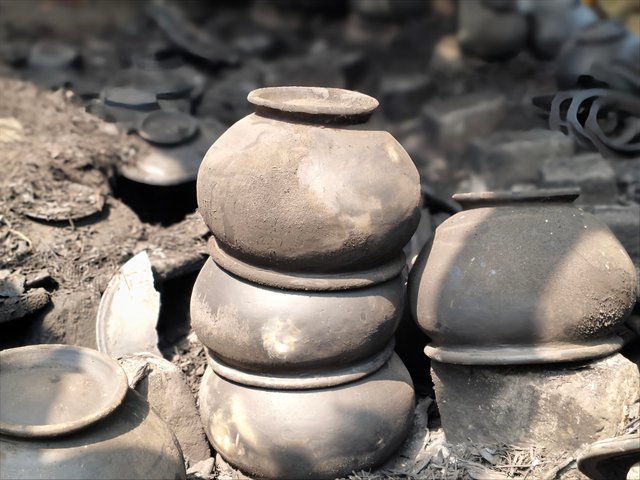 |
|---|
| broken pot | 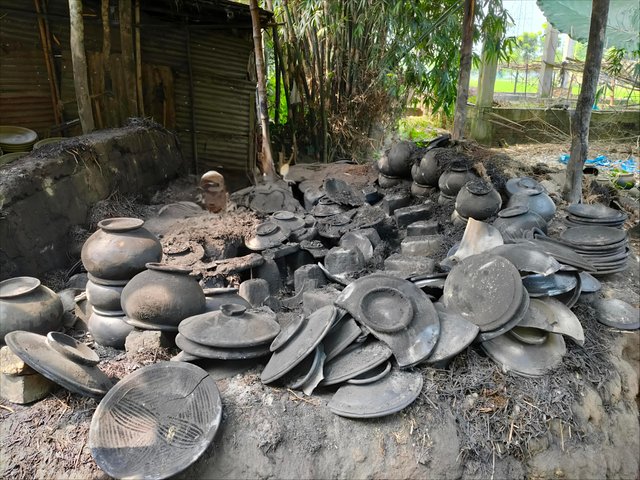 |
|---|
After saving the good pots, they are sold wholesale or the pot seller himself takes them to the market. And the broken pots are thrown into the river from there. Every time the pot is burned, 30-40 out of 200 pots are destroyed, which saves the good pots. After this, many people put these broken pots under the stove. Here I am giving the prices of some pots that are sold at low prices in the form of a table.
| No. | Product Name | Price (Taka) | Price (Steem) |
|---|
| 1 | Hari (per piece) | 60 Taka | 60 ÷ 13 = 4.62 Steem |
| 2 | Pashun | 40 Taka | 40 ÷ 13 = 3.08 Steem |
| 3 | Stove Stand (Kanta) | 25 Taka | 25 ÷ 13 = 1.92 Steem |
Me while traveling to Kumarpara.
I had never had such an experience before, going to a village and talking to the potters, taking their pictures and videos. This was only possible because of steemit. My experience was truly amazing, I have never seen their lives up close before. I really enjoyed talking to them. They make these pots by helping each other, both husband and wife.
Short video
| map | information |
|---|
| google | kumar para Bhowani Chowpatty road link |
| steem-atlas | //:# (!steematlas 25.5773125 lat 88.9224375 long Kumar para d3scr) |
Support @pennsif and @pennsif.witness for the growth of this creative platform. Vote for @pennsif.witness here
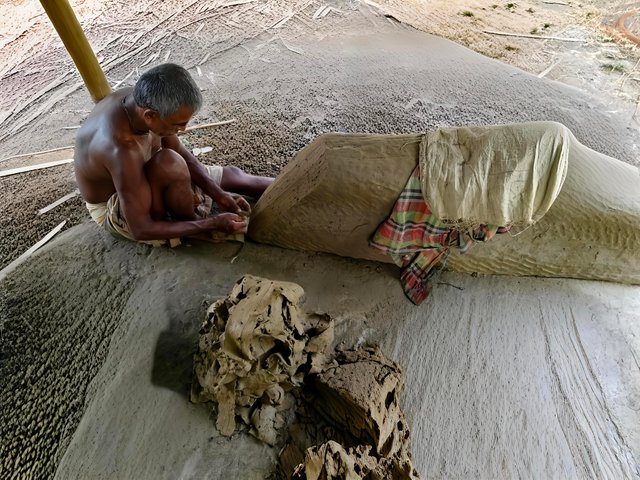
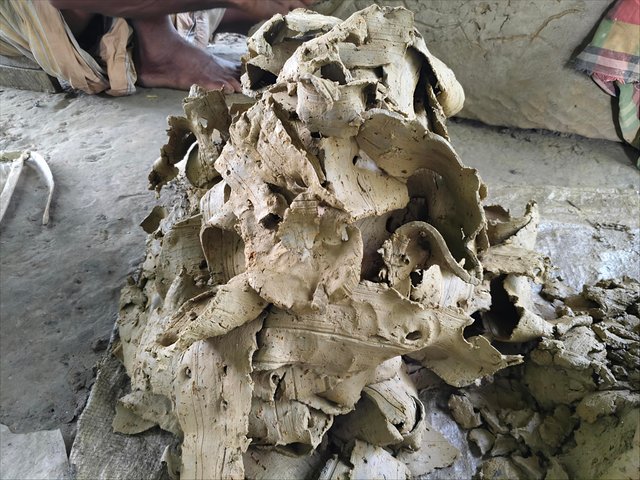
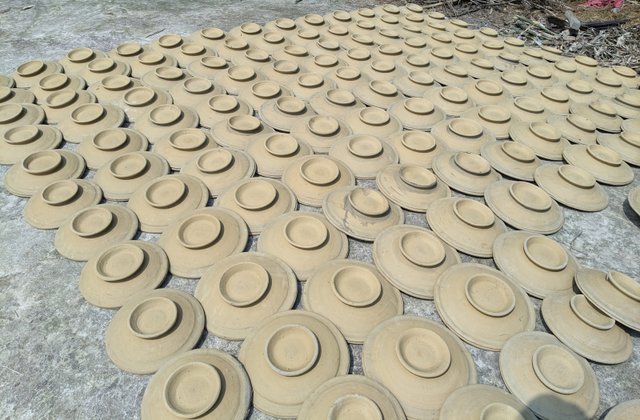
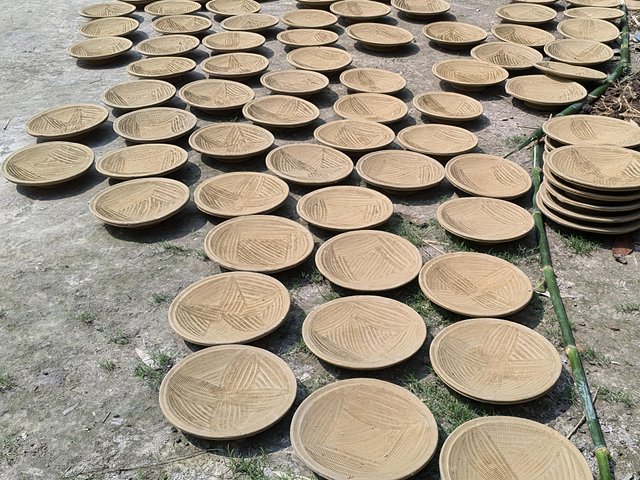
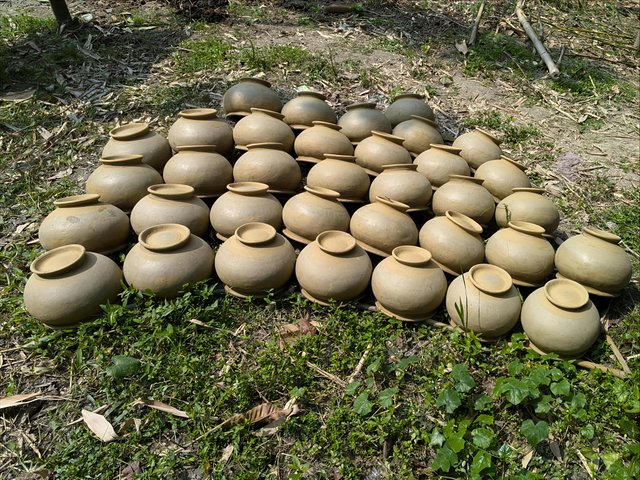
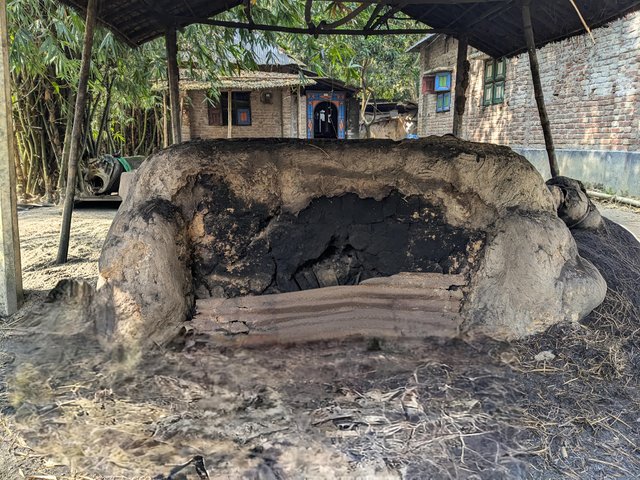


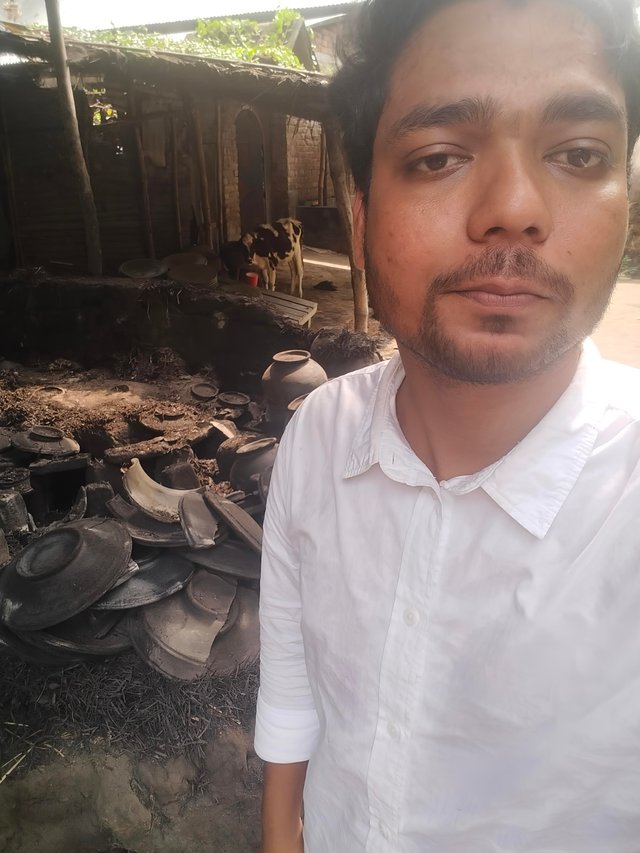
X-share